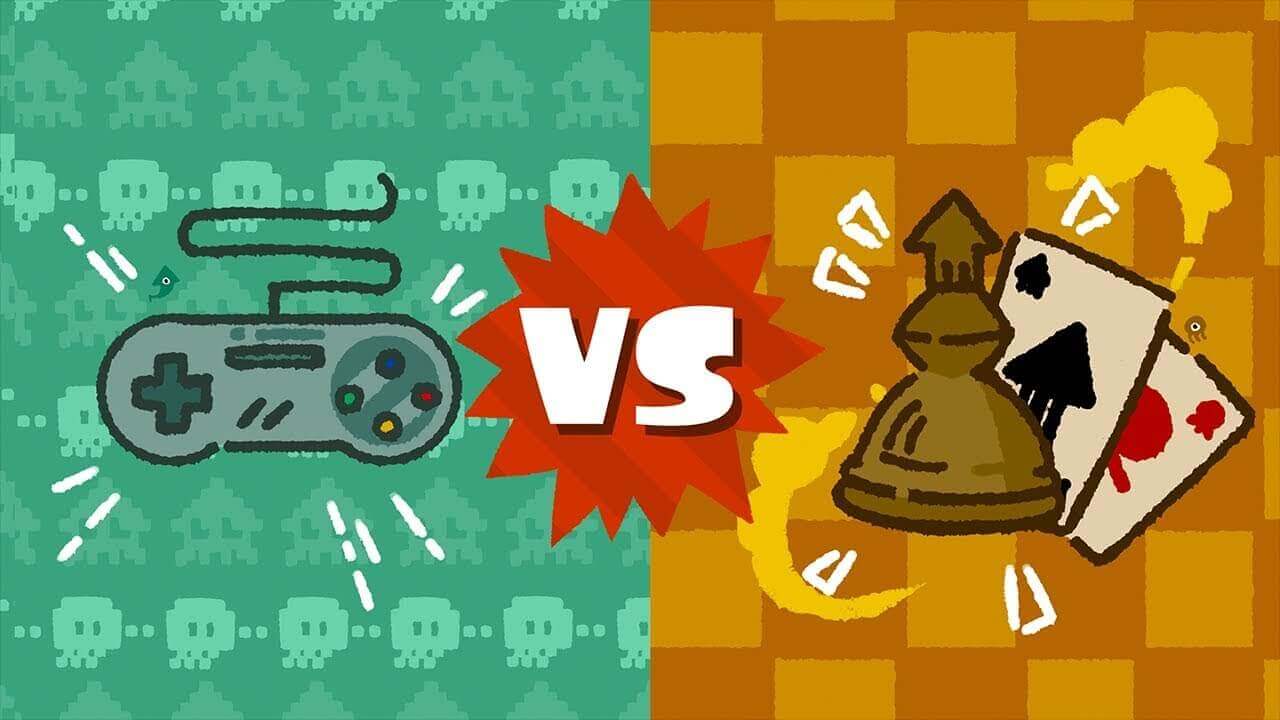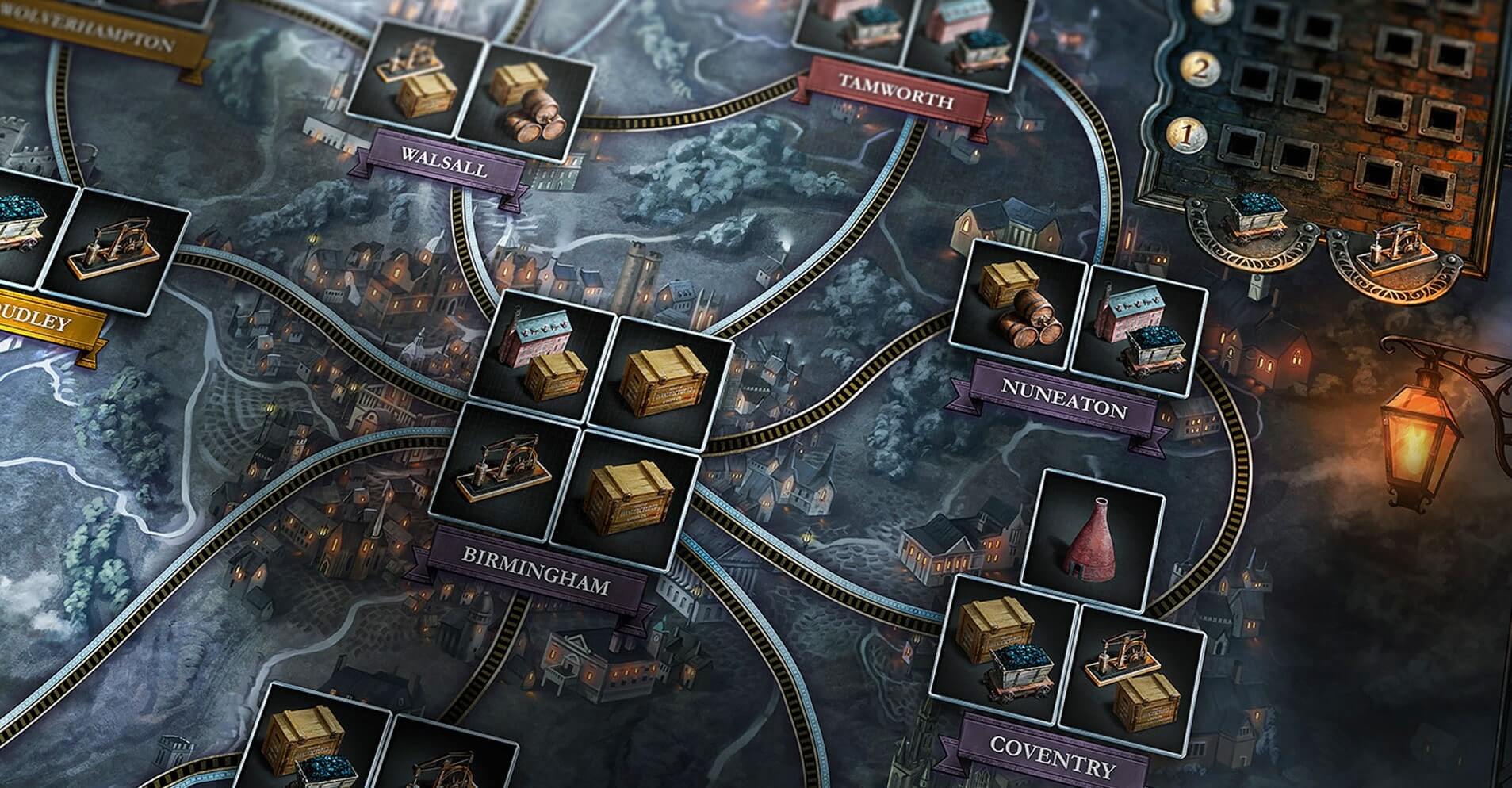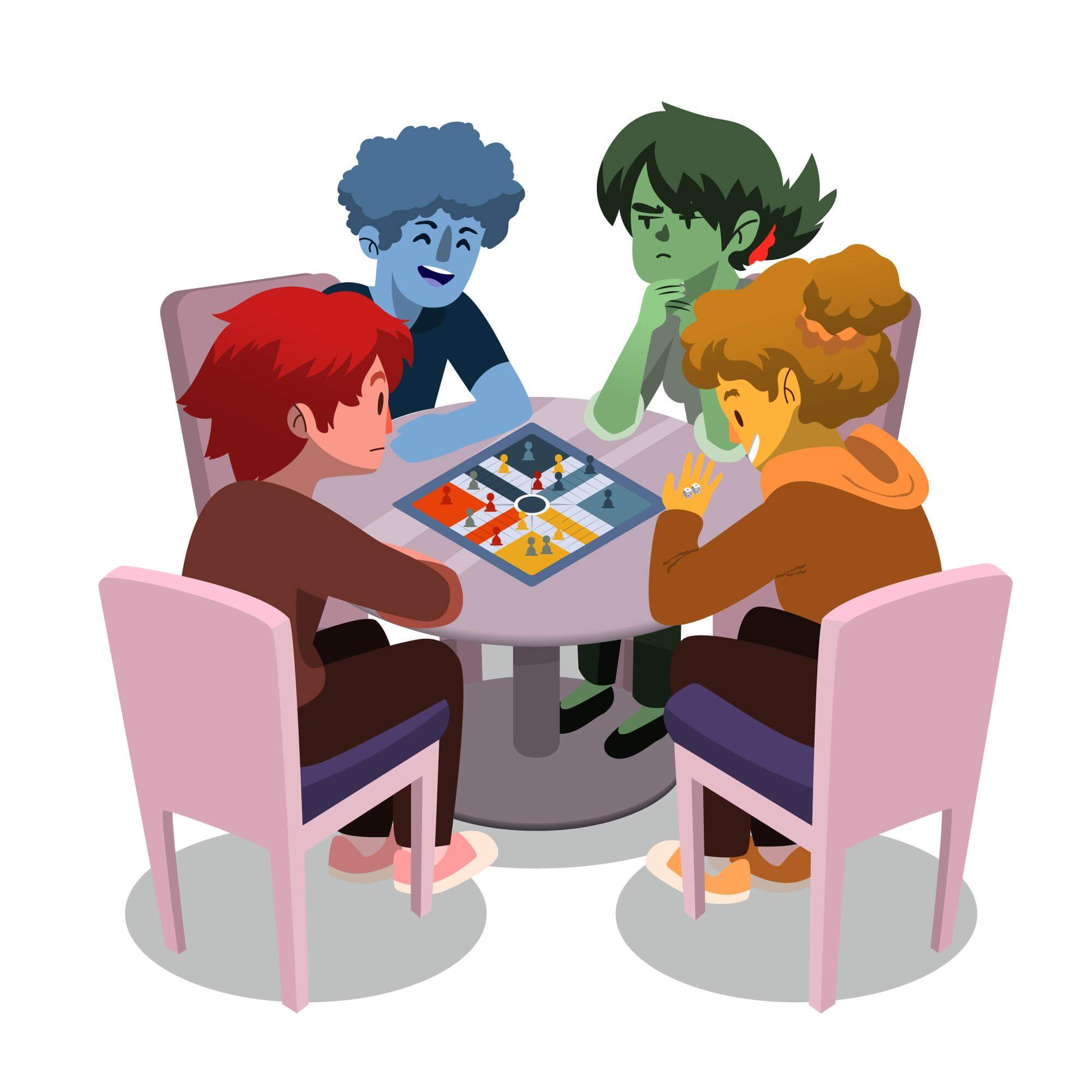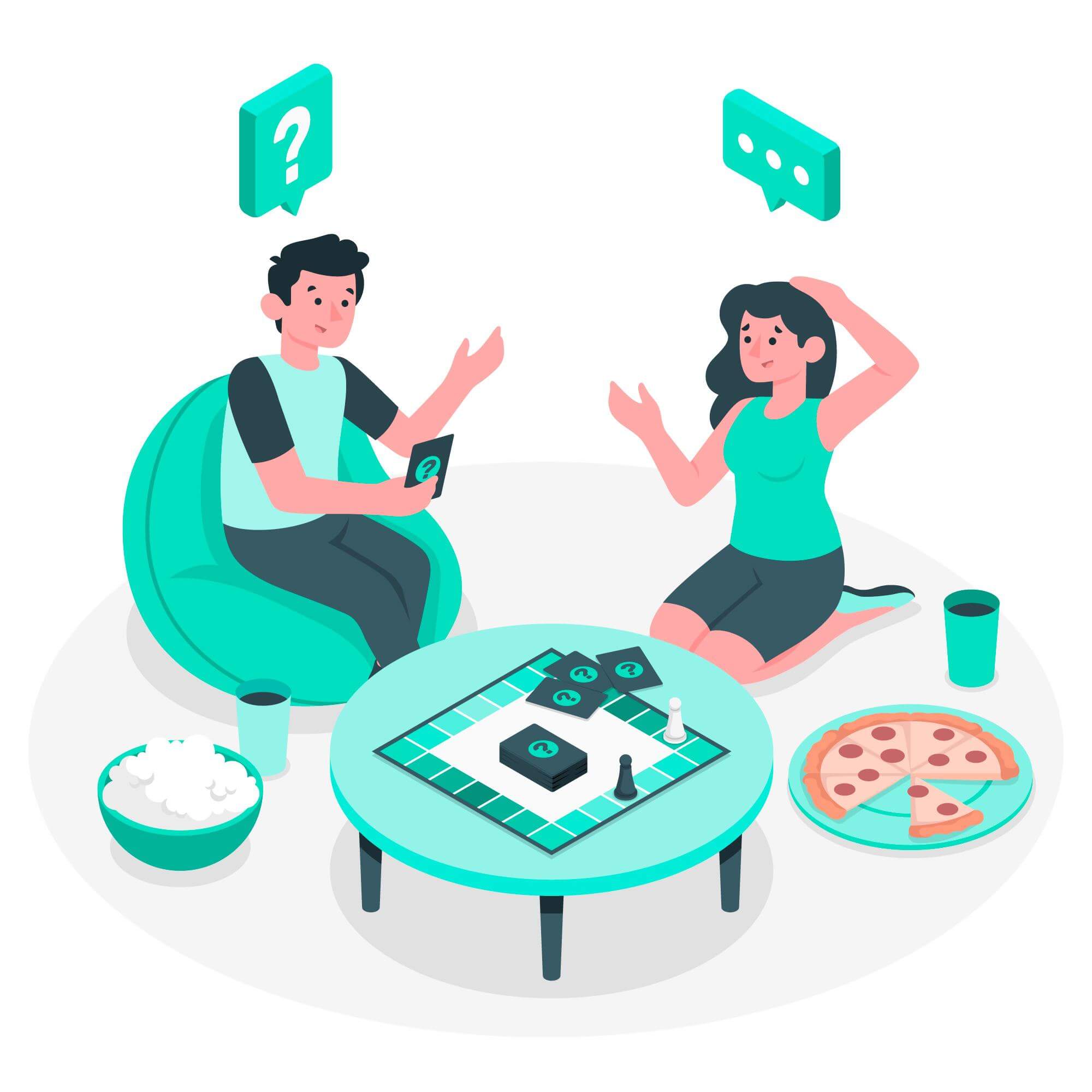We’ve all heard time and again that playing video games is bad for the brain. “You’ll go blind if you play too much”, “It’s so violent it’ll make you mad”, “You’re killing your brain cells playing so much”. These are just a few of the arguments people have about playing video games. But nowadays, we know this isn’t an exact science – many studies show that while video games aren’t entirely beneficial, they have many positive effects on the development of the brain.
But we’re not here to talk about video games and whether they’re good for you or not. We’re going to talk about an alternative option– board games.
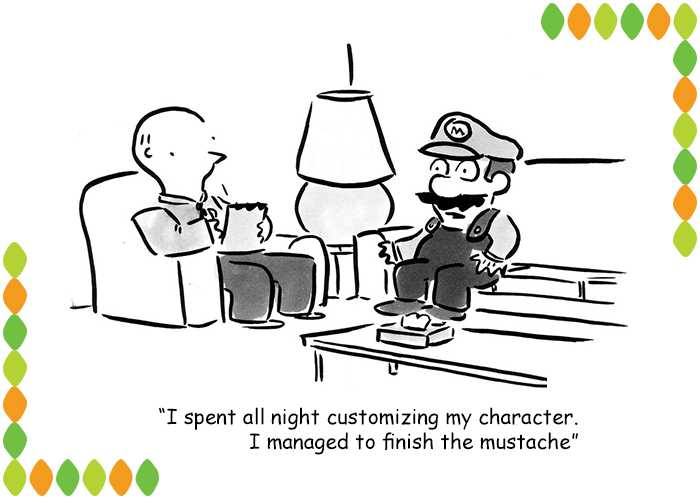
Board games are the analog alternative to the digital video game world. There seem to be many limitations in creating a tabletop experience as compared to video games – instead of interacting with the world through a first or third-person view as the protagonist, you only have cards, still images, and miniatures to play around with. But this doesn’t mean you can’t have as much fun. Sure, there’s a certain satisfaction in shooter games when you eliminate your opponent and see their avatar fall down. But it’s another feeling when you use your own hands to move your soldier meeples into your opponent’s territory and watch the look of grief on their face as they realize they’re going to go down. Or the cries and cheers of joy when your cooperative party finally removes the last of the enemy tokens from the board. It’s so much more exciting when you have these experiences in the flesh, not just behind a flat screen.
Some major differences between video and board games include:
1. It doesn’t matter which platform – mobile, pc, or console – video games happen behind a screen. Staring at a screen for too many hours a day has a negative impact on a person’s eyesight. But in board games everything is physical. Aside from a few games which rely on companion apps, you are never required to stare at a screen in a board game, and you never feel the need to rest your eyes.
2. When creating a world and visual aspects of a video game, the only limitation is your imagination and your coding skills. This means you can create any creature, structure, or anything else just the way you want and have it respond to the players just the way you want. Some video games have even been considered works of art – most notably the souls-like RPG board game, The Elden Ring. Whereas in board games you cannot program anything to react to a certain trigger throughout the game. You can only instruct the players to show these reactions using cards, tokens, marks, etc. Consequently, players can’t dive into the feel of the game as easily as in video games.
read more: What are RPG board games? – 7 of the best RPG games
3. While both video and board games have a wide range of categories such as puzzle-solving, roleplaying, and shooters, it seems that video games tend to mostly challenge hand-eye coordination, timing, and emotional reactions. While board games develop cognitive skills and brain function.
4. Not everyone is willing or able to sit down and get into playing a video game, but set a board game up on a table and just watch as the eager and curious players fill up the seats!
In addition to that, playing board games specifically has positive effects on your health and your life;
1. It’s very common for players to burst out laughing after an action is taken. Sometimes, even a small simple wisecrack from a player can be amplified into pure comedy while playing a game. Even the most serious stone-hearted people are forced to crack a smile when they get in the atmosphere.
2. Although there is a wide array of solo board games, nearly all board games require at least two players to play. And it doesn’t stop there. Even if you have a room full of people, you can find a game to grab their attention and sit them down for a few hours – and playing games with people creates connections and relationships. You get to know them after a few rounds, either by chatting throughout the game or even by their playing style. So, these games are a good excuse to break the ice and strengthen your friendships.
3. Studies show that playing games helps your body release endorphins, which are pain-relieving and relaxing hormones. Scientists have found that high levels of endorphins reduce stress, anxiety, and depression and improve your overall sense of well-being. Playing games regularly will do all of that for you in the long run.
4. In every game you play, you always have one main goal; to win. And in order to win, especially in heavier games, you need a good strategy. In that strategy, you may have to design large and difficult plans, think ten steps ahead, and be patient, all the while keeping an eye on your opponents and their strategies as well. And the best part is even if you lose, it’s just that. You only lose the game and nothing more. By making important decisions and taking big risks in a stress-free and friendly environment, you develop your strategic thinking and problem-solving.
5. Games are a great source of mental training for children as well. Studies show signs of increased knowledge in children who play games frequently. Because of the competitive nature of games, children and even adults are keen to utilize and develop their critical thinking, logic, and math abilities.
But all of these facts are in theory and in order to fully comprehend the benefits of playing board games, you’ll have to experience it first-hand. Here are a few lessons I’ve learned by playing one of my favorite games that I know by heart – Scythe.
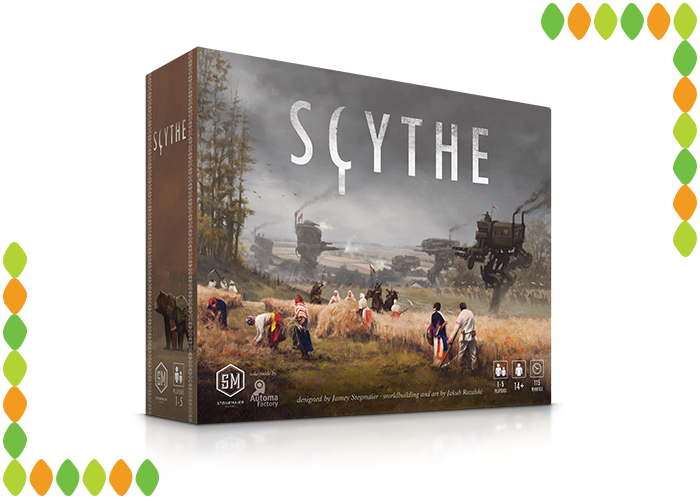
Scythe is designed by Jamey Stegmaier of Stonemaier Games, set in an alternate timeline in a post-world war region called Europa where players take the roles of different nations competing to gain diplomatic and military control of Europa. In this timeline, mankind has reached the technology to build massive war machines called mechs, as you can see in the background of the box cover, and they use the power of these mechs to fight their wars.
At first glance, it seems that Scythe relies heavily on combat between players and well, it does and it doesn’t. It’s true that a major part of the game is about building war machines and bolstering power and the like, but it isn’t uncommon for a game of Scythe to end without any battles happening. What I’ve learned from the combat aspect of Scythe is that it’s not always about becoming powerful in order to fight with your opponents, it’s about being a threat to them. Sure, you could decide to battle with someone and you might get a lot of rewards for it, but sometimes it’s better to save your resources so that you can maintain the position of power throughout the game.
Another wonderful mechanism of Scythe is the action selection. In turn, players each take one out of four possible actions shown on their player mat, and they could perform a bonus action only if they have the required resources. In other words, if you play smart, you could take two actions in your turn instead of one. And that gives you a big boost compared to other players. This has taught me to think several steps ahead and manage my actions in a way so that each action connects to the next one and creates a chain of events so I can stay on top.
Throughout the game, players reach certain milestones and get a star if they meet specific requirements and the game immediately ends whenever any one of the players gets six stars. Because it is possible for players to gain multiple stars in one turn, the game could end at any moment. It sometimes happens that you take a look at the stars and you think with yourself that you still have lots of time to do what you want, but then some player executes a big and great action and the game suddenly ends. And it feels like a blow in the face. This has taught me to always be on the lookout for my opponents and try to calculate and predict their actions and to never underestimate hidden knowledge other players might be keeping to themselves.
These are only a few of the lessons I’ve taken with myself by playing just one of thousands of board games out there. You can only guess how much me and my friends have learned and improved ourselves all the while playing games and having fun. It’s a win-win situation for everybody. Even the losers. So, after finishing this article, head out to your local board game store or café, browse for a bit, pick some games you think you and your friends will enjoy, and start having fun! I’m sure you’ll all feel the board game pleasure after your first round.

